7 books you will psyche on and should totally read: What Youth


Another great link Wilhelm. You might be surprised to know that I've taught out of the core books, intentionally.
If people were to ask where is a good place to start learning economics then I was going to link to the free core economics book The Economy.
I'd consider these books as very centre-left orthodox economics. They very much align with what I push for.
Maybe you won't like them now...!
Only comment I'd make is there's nothing new in them, just a nice arrangement of topics.


man, sticky territory, a novel with a writer as the protagonist.
I'd recommend the book I read with the kids a while ago, Bren Smith's Eat Like a Fish. Not an earth shattering book, but it's a weekend read, and does make you consider the idea of small-scale crofters having a go at vertical sea farming: growing seaweed towers that feed shellfish, and snicking various bounties from it to sell to local restaurants, etc.


Cormac mentioned above, read The Road this month after being ignorant of its existence. Was deeply moved by it.
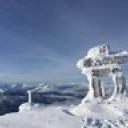

The Road.
I N T E N S E
Had to take breaks while reading it. Like coming up for air (literally, not an Orwell ref)


I don't know if I could read that book again.... especially as a father. reading that quote above just about floored me, just like the book did the first time I read it.


This talk about The Road has really piqued my interest.
I think I’ve seen the movie but I can’t really recall it.


etarip wrote:The Road.
I N T E N S EHad to take breaks while reading it. Like coming up for air (literally, not an Orwell ref)
i agree etarip. key segments at a time, pause, reflect, admire/be moved by the imprint it leaves, reset and go back in.


I've not read any Cormac McCarthy yet, perhaps wary of how dystopian I'd find it. What's a good McCarthy starter kit for the timid?


Thank you, Stu.
I do enjoy the US frontier stuff, and thought it was brilliantly done in the film version of No Country for Old Men. Tommy Lee Jones was great, but I thought Bardem's killer was camp and overdone.
I shall go to our very good local library and start the journey.


IB - I reckon kick off with All The Pretty Horses or Old Country for Old Men. The first because it’s perhaps the more conventional novel and really highlights McCarthy’s incredible descriptive power. No Country because you might enjoy the comparison between the movie and the book. Subtly different but the Anton Chigur character is just so… malevolent…
But you can’t go wrong with either.
Blood Meridian is brutal and delves into the metaphysical. I love it but it’s hard going at times.
Edit: I’m going to summon up the courage and reread The Road.
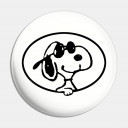

Just finished Owen Wrights book. Surprisingly well written for a pro surfer (I suspected a ghost writer, but some of his expressions are perhaps a bit clumsy for it be written by a 'proper' author) ... nothing overly intellectual and a pretty easy book to get through. Definitely an inciteful and candid read and may help punters understand the entire Wright clan a little more. A fair bit on head trauma and some interesting insight into the mind / body connection. I had no idea of the challenges he overcame even after winning snapper. Grab a copy if you're interested.


Danielle Laidley - Don’t Look Away
This was a mind blowing read. Incredibly worthy on many levels.
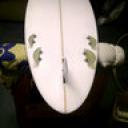

stunet wrote:Island Bay wrote:I've not read any Cormac McCarthy yet, perhaps wary of how dystopian I'd find it. What's a good McCarthy starter kit for the timid?
The Road is his only dystopian story. Most others are very traditional. In fact, The Road was an inversion all around. He usually conjures beautiful landscapes with elaborate sentence structures writing stories with violence at their core. Instead, The Road was grim and punctuated with very short sentences, as though the protagonists had no energy, but it has optimism at its core.
Starters? Any of The Border Trilogy - set in the US southwest border region - maybe begin with All The Pretty Horses and work through if you like it. Or perhaps Blood Meridian.
Keep in mind, he's an admirer of the US frontier and all the violence that happened there. He's a master stylist but all those novels mentioned are bloody.
Dont bother with his latest books, published just before he died. I've tried reading The Passenger but couldn't get into it.
Agree 100% recommend starting with The Blood Meridian, The Crossing and all the Pretty Horses
And reading Cormack Maccarthy slowly - really slowly


I think "The Road" was my first Cormac McCarthy book. As a new father, it also rocked me very hard.
Have read most others and was going to get into "The Passenger" next. Notwithstanding Stu's comment above, his turn of phrase surpasses most other novelists, so in my mind it's worth a read all the same.


Gabor Mate' - The Myth of Normal (Trauma, Illness & Healing in a Toxic Culture)
This is genuinely one of those books that everyone should read, sooner rather than later.


Why Rabbits? Not being flippant just interested.
I’m on a second run through Zen and the art of motorcycle maintenance, resonates a lot.
Also have persevered with A Little Life by Hinya Yanagihara, a very moving work of fiction that underlines the integral part human relationships play in our lives


Roystein wrote:Why Rabbits? Not being flippant just interested.
I’m on a second run through Zen and the art of motorcycle maintenance, resonates a lot.
Also have persevered with A Little Life by Hinya Yanagihara, a very moving work of fiction that underlines the integral part human relationships play in our lives
Hi Roystein. I’m reluctant to give it a detailed overview knowing that I won’t be able to do it justice. It’s a pretty meaty read. I say it’s a must read for everyone basically because it’s about why human’s are the way we are & how we’ve got to where we are today. It then offers some fascinating, realistic, proven ways to continue changing the course of human behavior going forward for the betterment of all but will require ongoing significant shifts from the status quo. It’s an incredibly interesting & positive read.


Could be way off but sounds like it may kind of continue on from where Sapiens finished up
I’ll add it to my upcoming order for summer


Roystein wrote:Could be way off but sounds like it may kind of continue on from where Sapiens finished up
I’ll add it to my upcoming order for summer
Also, the depth of detailed research, interviews, first hand accounts etc etc is quite staggering. If you do get around to reading it I’d be interested in your take.


Read a heap of books this year. Not sure what to recommend.
Went back in the thread to see that I had started reading ‘The Dawn of Everything’ in January. Haven’t finished that. I’m sure I will, but it kept getting pushed back in the queue as interest waned. The ideas espoused thus far are compelling though.
I think I’ve only read a couple of books in my life that I haven’t finished, so the odds are good that I’ll finish it.
Started and finished ‘Homo Deus’, the follow-up to ‘Sapiens’ by Yuval Noah Harari. Sorry, I can’t recommend it. Whereas Sapiens was really interesting, this one just seems forced. Reads like a book written by a man desperately trying to write a follow-up after an unexpected success. Too many outright howler statements made which we seem to expect to take as fact, and far too much reaching for something interesting or dynamic. Literature is full of people who have posited a possible or likely future which has turned out to be diametrically different to what eventually comes. Perhaps this can be read as advice about how the future of mankind will NOT be.
The result being that my initial admiration for Mr Harari is somewhat tempered, or perhaps extinguished.
Currently reading ‘Factfulness’ by Hans Rosling. Longer title is ‘Ten reasons we’re wrong about the world - and why things are better than you think’.
So far it’s ok, but concentrates on things that I was familiar with (how rates of poverty have improved significantly in the past 50 years, childhood education, vaccination rates etc). Only half way through, and although it was first published in 2018 I doubt that the book will sufficiently tackle extant world problems we face, principally climate change and the seeming rise of authoritarian right wing government (in particular the problem of Donald Trump and his re-election prospects.) I also doubt that the book covers the problems of the mega-corporations and how they have basically overtaken democratic governments where they still exist. Or how the internet and social media seems to have led to the breakdown of societal norms and the atomisation of society. Big things, all of these, and seemingly intractable.
So perhaps the world is much better than we think, especially if you ignore problems that seem to have no real solutions (I count denial as not really being a problem solver).
Also on the go is ‘Sand Talk’, by Tyson Yunkaporta. I’ve decided this book is one to sip on occasionally and mull over, rather than read through immediately. Attempts to introduce Indigenous concepts and thinking to the non-indigenous mind. Good luck with that Tyson.


Will have to look through other books in the past year. Can highly recommend ‘Fear and Loathing in Las Vegas’. I had to read it, have only ever read excerpts or essays from HS Thompson, so this was a crawl back through missed history. A time capsule of sorts, short and sweet.
Also this year read quite a few fiction books which have only ever been a small part of my reading diet. Some years ago got onto Australian noir, and found to my surprise that we have a well established and largely fantastic group of writers. Was initially introduced via Jane Harper’s ‘The Dry’, but that was years ago. She put a new one out this year so had to be read. Anything of hers is fantastic.
That then put me onto others - Chris Hammer has done a series of books, regional Australia, crimes, skulduggery, heat. Everything of his is great but I’d recommend reading them in order. He put a new one out this year too.
Got put onto Garry Disher’s books, particularly the series revolving around Constable Hirschhausen. Just great reads. Read them in order too.
Read a batch of Peter Temple books too. Can’t recommend highly enough, just sparse language, as dry as the desert, and character filled stories. The Broken Shore’ and ‘Truth’ particularly, and a couple of the Jack Irish series. A great escape, which I can afford to indulge in these days.
Read a Dervla McTiernan one as well, I think it was ‘The Ruin’. Didn’t like it. Story was ok but the language was just wrong somehow. No colour in it, no style, hard to explain. I just don’t think she’s a good writer. Highlighted for me that good writing is more than a script, words on a page. There’s something about putting the writer’s soul into the book, and having that je ne sais quoi style and facility with language. I just don’t think she has it. That’s undoubtedly harsh though


The Broken Shore is great. Haven't read Truth, but will take a look.


Finally got around to reading Cormac McCarthy. Was prompted after watching him in conversation - very interesting fella.
Anyhoo, the only book our local library had was The Passenger, and so far so interesting, and not for slouches. Very particular style and punctuation, or lack of the latter.


Rabbits68 wrote:Danielle Laidley - Don’t Look Away
This was a mind blowing read. Incredibly worthy on many levels.
Read this early this year, may have been on this recommendation and hence Christmas stocking request. A very brave, humorous and inspiring bio. Thanks rabbits.
Glad to see this thread moving again.
For any parents of children 2-16 please please read The Anxious Generation by Haidt and then tell your kids friends parents and anyone else who will listen. We will need a collective effort on all fronts to support the recent federal government decision on social media and make a move to improve the outcomes for young people.


Thanks for the tip. I’m ordering it right now. I have 3 boys in that range, I didn’t give them phones and I only allow a couple of hours of YouTube over the weekend. It’s a fucking shitshow of a fight but both my wife and I are determined to keep them off the devices for as long as humanly possible. And kudos to the government on that legislation, I’m hoping they even include YouTube in that bucket. Its reels are as toxic as it gets.


Roystein wrote:Rabbits68 wrote:Danielle Laidley - Don’t Look Away
This was a mind blowing read. Incredibly worthy on many levels.
Read this early this year, may have been on this recommendation and hence Christmas stocking request. A very brave, humorous and inspiring bio. Thanks rabbits.
Glad to see this thread moving again.
For any parents of children 2-16 please please read The Anxious Generation by Haidt and then tell your kids friends parents and anyone else who will listen. We will need a collective effort on all fronts to support the recent federal government decision on social media and make a move to improve the outcomes for young people.
Great stuff Roystein. Thanks & all the best.


Will read The Anxious Generation myself. Issues close to my heart.
Having just looked it up and read some synopses, could I just remind you that you guys/ladies are already aware of the underlying issues (social media only one part of the picture) and are engaging with your kids in the real world. As in don't beat yourselves up too hard or totally despair.
All the best to you all - and not said lightly.


Will order Anxious Generation.
Nearly finished this one specifically for Tweens.
Found it interesting and offering good advice for parents of that age group.
https://www.amazon.com.au/Tweens-Michelle-Mitchell/dp/1761049895


Island Bay wrote:Will read The Anxious Generation myself. Issues close to my heart.
Having just looked it up and read some synopses, could I just remind you that you guys/ladies are already aware of the underlying issues (social media only one part of the picture) and are engaging with your kids in the real world. As in don't beat yourselves up too hard or totally despair.
All the best to you all - and not said lightly.
100% IB.
Some of the most pragmatic advice in the book is for parents to consider themselves gardeners not carpenters.
Ie create the environment within which a young person develops into their own unique version of themselves, rather than hold the tools and mould them as you wish to see them.
It’s not easy but remember to love, accept and forgive (each other and ourselves)


Very timely recommendation Roystein. We've been parachuted into bringing up our grandkids (at least for the short term) and it's easy to feel lost as to how to help/teach/warn them ie. social media, etc.
I'm active myself and I take them with me for most of what I do and they love it. Hiking, biking, surfing (although only bodysurfing these days).
Take their access away from phones etc, and you can see them start to emerge and breathe grow.
But unfortunately it's never far away, so yeah, I'll definitely give that a read.
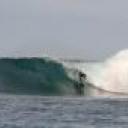

Has Larry Blair's autobiography been mentioned on here? I haven't read it, I just found out about it now:
"And as adventurous as it was for a young kid, it turned into a hellscape only too soon. After his father’s mob got away with the largest armed robbery in Australian history, a gangland war ensued with the notorious ‘Toe Cutters’ gang. They kidnapped his dad Baldy, and tried to force him to confess where the loot was hidden. “My dad’s toes were cut off one by one,” Larry describes in gruesome detail, “and then his body dissolved in acid by gangsters. After a childhood like that, tackling Pipeline was a walk in the park.”"
https://www.surfer.com/culture/the-outside-larry-blair-biography


Has anyone read flow violento? thx


Finished Cormac McCarthy's The Passenger last night. What an absolute treat to read; so much meat on the bone, and so many beautiful passages. He's very good writer, and a very deep thinker, imho.
Onto Jonathan Haidt now: The Coddling of the American Mind, then The Anxious Generation. McCarthy's Border Trilogy after that. What a joy.


Looks like Cormac McCarthy is next on the list for me
Books on a theme as a glimpse to the past and a look into the future.
The Book Thief by Markus Zusak. Listened to this as an audio book and one of the best I've heard, brilliant.
All The Light We Can See by Anthony Doerr
Seeing as Elon Musk and Vivek Ramaswamy are at the table and there's a robot dog patrolling Mar-a-Lago at the moment, maybe it's the one that rogered Tucker? Machines Like Me by Ian McEwen could be a glimpse of where we're headed with the tech bros holding the reigns
and if it all goes to shit then City of Bohane by Kevin Barry, again listened to as an audio book which was read by the author so his Irish brogue gave it another dimension and is another favourite


Haha, you never know!
But here's to being outside.


I really enjoyed this Niall Williams book, but then I don't like plot in my storytelling, more character portraits and atmosphere....
https://www.abc.net.au/listen/programs/the-bookshelf/the-bookshelf/10445...
good Chrissy presents if you know anyone into UK-type stuff: the 3 books in the above ep of the bookshelf, Time of the Child, Gliff (companion novel, Glyph, to be released 2025) or The Great When..


McCarthy's muse apparently.
https://www.vanityfair.com/style/story/cormac-mccarthy-secret-muse-exclu...


another less flattering article about Cormac McCarthy relationship with a minor ....
https://www.theguardian.com/commentisfree/2024/nov/28/cormac-mccarthy-va...


Heck, just finished Blood Meridian. And it took me a while, the depravity and violence making me put it down at times. Stunningly beautiful too, though, especially the descriptions of the (super)natural environment.
The ending will haunt me for a while, both its meaning and the heaviness of it.


That sounds like a tough one to have a go at.


stunet wrote:Island Bay wrote:Heck, just finished Blood Meridian. And it took me a while, the depravity and violence making me put it down at times. Stunningly beautiful too, though, especially the descriptions of the (super)natural environment.
The ending will haunt me for a while, both its meaning and the heaviness of it.
Did I warn you about the violence and depravity? I think I warned you.
But it's a caution that comes with a great counterweight: His majestic use of language. Sentences of incredible structure; descriptions of unbelievable atrocities.
You did, Stu, but it was still hard in places.
Ironically, the attack from the Apaches, early in the book, is one of the most incredible pieces I've read. So brutal, but stunning. As I recall, nearly a whole page with no punctuation, just violence.


Will add it to the list
Just finished the Moors Account. Slow to start but comes into its own unique perspective of a slaves journey at the frontiers of Spanish expansion. Written from the slaves viewpoint and his story is powerful in its humanity and courage. Worth considering.
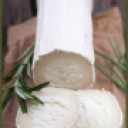

'The Bad War' - Mike King
'Ancient Knowledge' - George Curtis
'Pole Shift: Evidence Will Not Be Silenced' - David Montaigne

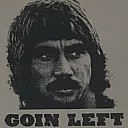
Here's a list that gladdens. What Youth and "7 books you will psyche on and should totally read."
http://www.whatyouth.com/2014/02/14/radical-class-2/?id=16859
I often bemoan the fact that good writing is a dying art. It ain't necessarily true but it sometimes feels that way. The yoof, it always seemed to me, could buy a Canikon for a couple hunge, flood the 'net with images, and call 'emselves artists - easy! But unlike photography there's no shortcut to good writing: no autofocus, no colour correcting software - it's hard fucken work. And the first step toward it is to read lots and lots of great writers. So yeah, glad to see the yoof - What Yoof! - spruiking seven good books. Bit limited in scope and style but a good list nonetheless.